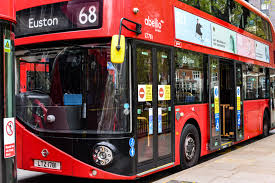Travel safe and new fares and charges
Travel safe
The government has published a comprehensive guide to help everyone understand how to travel safely during the coronavirus (COVID-19) outbreak in England. It provides guidance for walking, cycling, using private vehicles (e.g. cars and vans), and travelling by taxis and public transport (trains, tubes, buses, coaches and ferries). The government guidance states:
“You should avoid using public transport where possible. Instead try to walk, cycle, or drive. If you do travel, thinking carefully about the times, routes and ways you travel will mean we will all have more space to stay safe.”
New fares and charges
Meanwhile, the government’s recent financial settlement with TfL is reportedly going to result in a series of temporary and permanent changes (TfL has yet to confirm all these changes):
The following temporary measures (some key dates have yet to be announced):
- Free travel for children on TfL services will end as "soon as practicable".
- Freedom Pass and 60+ card concessions, which give free travel, will be suspended during peak hours, as "soon as practicable".
- Congestion charge: from today Monday 18 May, the £11.50 congestion charge for people driving into the centre of London will resume. From 22 June 2020 this will rise to £15, and the hours of operation will be extended to 7am until 10pm every day (at present £11:50 per day (7am-6pm), Monday to Friday only). This will be in place for one year (but could be made permanent).
- The Utra Low Emission Zone charge (ULEZ): from today Monday 18 May the ULEZ is reintroduced and in operation for 24 hours a day (as it was previously); no change to the £12.50 cost for most vehicles.
The following permanent measures have also been agreed:
- Fares on buses will be reintroduced as soon as possible.
- Above-inflation fare rises from next year, ending the four-year fares freeze. Fares will go up by RPI+1% (fares have been frozen since 2016).

